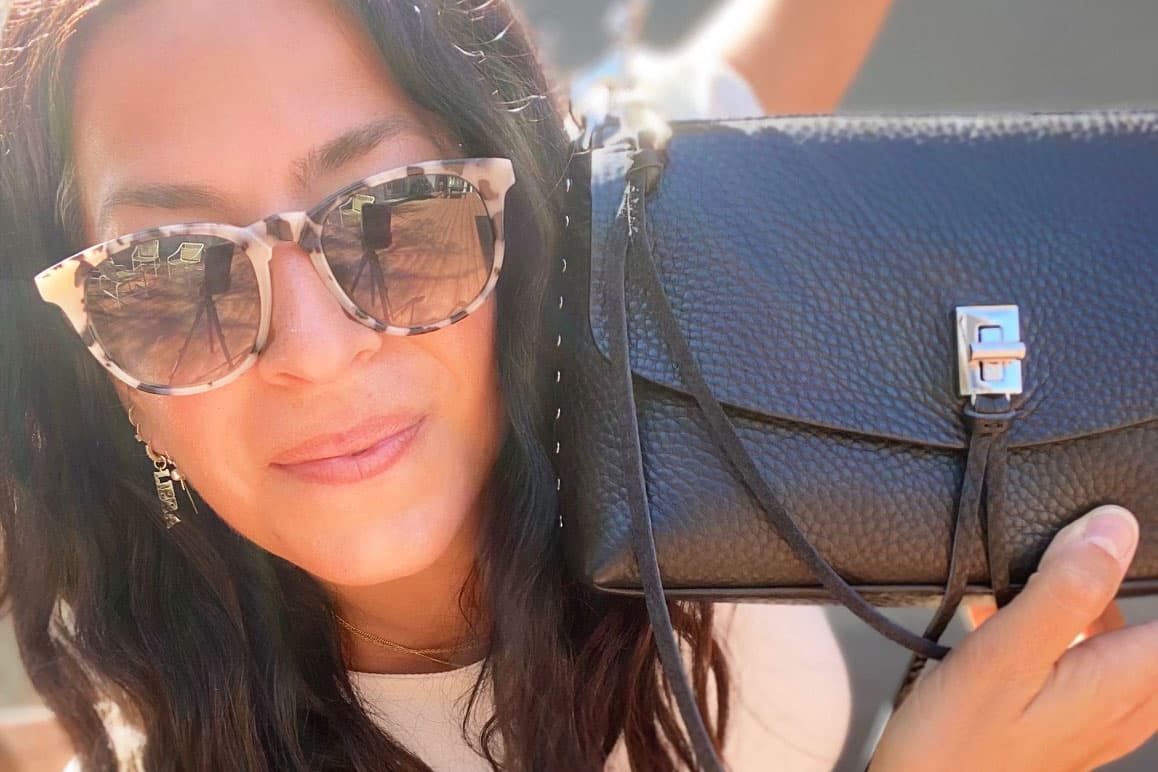When Rebecca Minkoff landed in New York at the age of 18, she had some money saved and big dreams of becoming a fashion designer.
“I had $10,000 in savings from babysitting, bat mitzvah money that I’d never touched, some bonds that I was given,” said Minkoff, co-founder and creative director of her eponymous fashion line.
She blew it all on the material for her first clothing line and expensive look-books, which showed off the line’s look. Only one store called her.
“You never forget that first moment where you’re terrified,” Minkoff said. “That’s all you have.
“That’s your cushion — and then it’s gone.”
More from Invest in You:
Almost half of Americans will take on debt in a post-pandemic splurge
Start-ups boomed during Covid. How some entrepreneurs found a niche
Shoe company Birdies soared during Covid and learned a hard lesson
She didn’t let it crush her. Instead, the fashion designer repurposed the fabric and made things that the two boutiques selling her clothing committed to taking on consignment.
“Then I would hand make these postcards,” recalled Minkoff, who chronicles her success and imparts advice in “Fearless,” her new book. “I’d go to Union Square and I’d be like, ‘New designer, up and coming designer, please go see her.’
“I would drive people to these stores so that they could purchase those goods,” she said.
Risk-taking has always been a part of Minkoff’s DNA. She moved to New York instead of going to college, and started her business after being fired from her first fashion job.
She also was in touch with her consumer early on, despite being told it would damage her business.
“We actually had meetings with every single incredible department store that exists that we were selling to, and also some very powerful [fashion publication] editors-in-chief that said, ‘If you continue to talk to your customer, we just don’t think we can carry you or cover this brand, you are dirtying yourself,'” Minkoff said.
“We were willing to take the risk,” she added.
It paid off — customers were drawn to her in-person events and retailers stuck with her.
Lessons learned during the pandemic
That mindset also helped her weather the coronavirus pandemic.
After stores shuttered in March of 2020, Minkoff said she lost 70% of last year’s business. She focused all her attention on her direct-to-consumer sales, and spent a lot of time talking with her customers on social media and through her podcast, “Superwomen.”
“It would have been a lot easier, a lot less work to be like, ‘Well, that was fun. … Just shut everything down, we’ll be back in a year,'” she said.
“We chose to keep going,” she added. “We said we owe it to ourselves … to give this everything we got.
“Sometimes that determines success alone.”
While Minkoff doesn’t disclose sales figures, in a May 2019 interview she said her gross sales figures were “north of $100 million.” That means the 70% loss she referenced would translate to $30 million in gross sales.
Fortunately for Minkoff, the retailers are back and are increasing their orders. Her direct-to-consumer business was up 10% in 2020 compared to the prior year, she said.
She is also launching new categories, including home, and her second scent is coming out. Later this year, Minkoff will also be collaborating with some footwear brands.
“The consumer, she wants to shop again, she’s excited to go out,” Minkoff said.
Advice to women entrepreneurs
Like other female entrepreneurs, Minkoff had to fight for her success.
“We have to stick our own necks out and make the sacrifices and take the risks to ask [for help],” she said.
Minkoff advises being specific when you ask others for help, like where they make their bags or where they get their leather, and network.
“I used to come home every night and count business cards like they were cash,” Minkoff recalled.
“I didn’t have any money but I had opportunity,” she added. “When you meet people that can help you or get you to the next level of that ladder, take advantage of that opportunity.”
Yet the most important thing budding entrepreneurs need to know is that Minkoff’s career was not an overnight success, she said.
“This has been 20 years in the making,” she explained. “So please approach that journey in your career, with that in mind.
“It doesn’t happen overnight,” Minkoff added. “Work hard and keep going.”
SIGN UP: Money 101 is an 8-week learning course to financial freedom, delivered weekly to your inbox.
CHECK OUT: 3 side hustle apps that could help you earn money — including one that’s ‘surprisingly lucrative‘ via Grow with Acorns+CNBC
Disclosure: NBCUniversal and Comcast Ventures are investors in Acorns.
